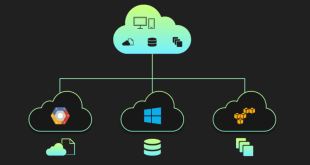As the world becomes increasingly aware of the environmental impact of technology, the need for sustainable solutions has never been more critical. Green computing with private cloud solutions offers a forward-thinking approach to tackle this challenge. In this comprehensive blog, we will delve into the concept of green computing, explore the benefits of private cloud solutions, and showcase real-world examples of companies adopting this sustainable tech infrastructure.
Understanding Green Computing
Green computing, also known as eco-friendly computing or sustainable IT, is the practice of designing, manufacturing, using, and disposing of computer systems and technology in an environmentally responsible manner. It encompasses a range of strategies aimed at reducing energy consumption, minimizing electronic waste, and employing renewable resources.
Green computing is a multifaceted approach that involves both hardware and software considerations. From energy-efficient components to optimized algorithms, each aspect plays a pivotal role in achieving sustainability.
According to a study conducted by the Lawrence Berkeley National Laboratory, data centers alone consume a substantial amount of electricity, making it imperative to explore eco-conscious alternatives.
The Role of Private Cloud Solutions in Green Computing
Private cloud solutions emerge as a compelling option for businesses seeking to align their IT infrastructure with sustainability goals. Unlike public clouds, private clouds offer exclusive control and dedicated resources to a single organization. By implementing private cloud solutions, companies can enjoy several environmental benefits:
- Resource Consolidation: Private clouds allow efficient resource consolidation, enabling organizations to utilize server capacity more effectively, thereby reducing the need for additional physical hardware.
- Energy Efficiency: With virtualization and workload optimization, private clouds can achieve higher energy efficiency, resulting in reduced power consumption and carbon footprint.
- E-Waste Reduction: By centralizing data storage and processing, private cloud solutions extend the lifespan of hardware, minimizing electronic waste generation.
- Renewable Energy Integration: Private cloud infrastructures can be seamlessly integrated with renewable energy sources, such as solar or wind power, to further enhance their eco-friendliness.
Real-World Examples of Green Computing with Private Clouds
Let’s take a look at some notable companies that have adopted private cloud solutions to embrace green computing:
GreenCoTech: Revolutionizing Data Centers
GreenCoTech, a tech giant committed to sustainability, has taken the initiative to build energy-efficient data centers powered entirely by renewable energy sources. By leveraging private cloud solutions, they have achieved significant energy savings, reduced greenhouse gas emissions, and set new standards for environmentally responsible computing.
EcoServe: Eco-Friendly Hosting Services
EcoServe, a leading web hosting provider, offers private cloud-based hosting services with a focus on ecological responsibility. Their data centers are engineered to consume minimal energy, and they actively promote sustainable practices among their clients.
SustainSys: Sustainable Enterprise Solutions
SustainSys, an innovative software company, has developed private cloud-based enterprise solutions that prioritize energy optimization and resource management. Their clients benefit from cutting-edge technology while reducing their carbon footprint.
4. Commonly Asked Questions
Q1: What exactly is a private cloud?
A private cloud is a dedicated IT infrastructure that serves a single organization, providing exclusive control over resources and data. It is hosted either on-premises or through a third-party data center.
Q2: How does a private cloud contribute to green computing?
Private clouds offer resource consolidation, energy efficiency, and the potential to integrate renewable energy sources, all of which contribute to reducing the environmental impact of IT operations.
Q3: Is green computing cost-effective?
Yes, green computing can be cost-effective in the long run. By optimizing resource utilization and reducing energy consumption, businesses can save on operational expenses while contributing to environmental sustainability.
Q4: Are there any security concerns with private clouds?
While private clouds provide enhanced security compared to public clouds, they require robust security measures and regular audits to ensure data protection.
Q5: How can businesses transition to green computing with private clouds?
Businesses can start by conducting an environmental impact assessment of their current IT infrastructure. Then, they can gradually implement virtualization, optimize workloads, and consider renewable energy integration.
Final Words
Green computing with private cloud solutions presents a sustainable approach to tech infrastructure. By embracing eco-friendly practices and adopting energy-efficient private clouds, businesses can not only reduce their environmental footprint but also pave the way for a greener and more sustainable digital future.
 webfily
webfily



